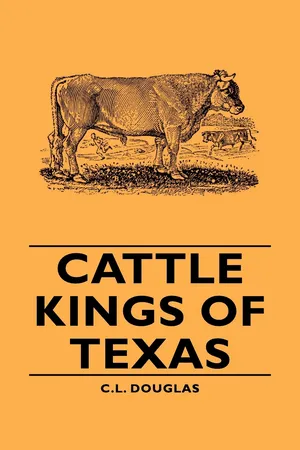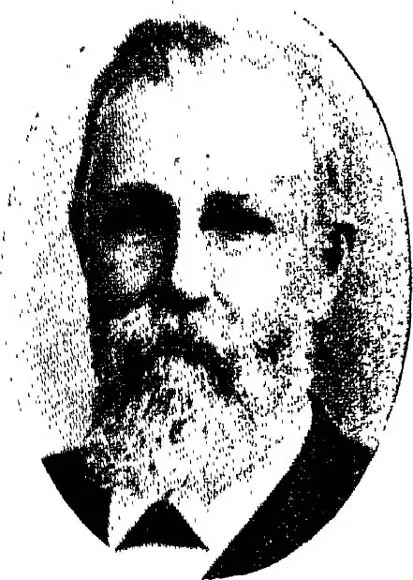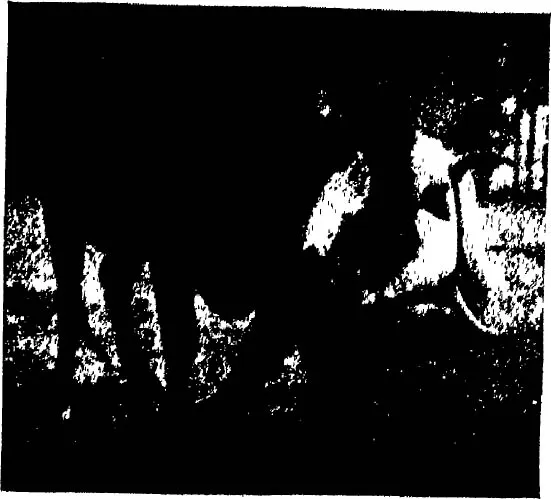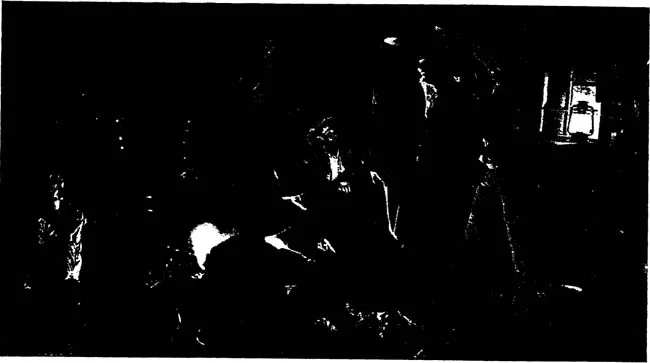
- 396 pages
- English
- ePUB (mobile friendly)
- Available on iOS & Android
eBook - ePub
Cattle Kings of Texas
About this book
This book comprises a fascinating and authentic look into the lives of some of the richest and most private ranches in Texas. This is a book that will greatly appeal to anyone with an interest in the historical singularity that is Texas, offering its readers a unique insight in to the ''real world'' of Texas ranch life and the ever-fading tradition of true ranching that made it what it is today. Many antique books such as this are increasingly rare and costly, and it is with this in mind that we are proud to be republishing this text here complete with a new introduction on the subject.
Frequently asked questions
Yes, you can cancel anytime from the Subscription tab in your account settings on the Perlego website. Your subscription will stay active until the end of your current billing period. Learn how to cancel your subscription.
No, books cannot be downloaded as external files, such as PDFs, for use outside of Perlego. However, you can download books within the Perlego app for offline reading on mobile or tablet. Learn more here.
Perlego offers two plans: Essential and Complete
- Essential is ideal for learners and professionals who enjoy exploring a wide range of subjects. Access the Essential Library with 800,000+ trusted titles and best-sellers across business, personal growth, and the humanities. Includes unlimited reading time and Standard Read Aloud voice.
- Complete: Perfect for advanced learners and researchers needing full, unrestricted access. Unlock 1.4M+ books across hundreds of subjects, including academic and specialized titles. The Complete Plan also includes advanced features like Premium Read Aloud and Research Assistant.
We are an online textbook subscription service, where you can get access to an entire online library for less than the price of a single book per month. With over 1 million books across 1000+ topics, we’ve got you covered! Learn more here.
Look out for the read-aloud symbol on your next book to see if you can listen to it. The read-aloud tool reads text aloud for you, highlighting the text as it is being read. You can pause it, speed it up and slow it down. Learn more here.
Yes! You can use the Perlego app on both iOS or Android devices to read anytime, anywhere — even offline. Perfect for commutes or when you’re on the go.
Please note we cannot support devices running on iOS 13 and Android 7 or earlier. Learn more about using the app.
Please note we cannot support devices running on iOS 13 and Android 7 or earlier. Learn more about using the app.
Yes, you can access Cattle Kings of Texas by C. L. Douglas in PDF and/or ePUB format, as well as other popular books in History & North American History. We have over one million books available in our catalogue for you to explore.
Information
King of the Sea Lions

SHANGHAI PIERCE

BULLDOGGING
• Shanghai Pierce—“as uncouth as the cattle he drove, but at heart, one of the best men in this or any other land.”
THE INCIDENT of the Confederate money barrel did more than mark an important turning point in the career of Shanghai Pierce; it signaled, too, the beginning of a new era in the South Texas cattle industry.
When Abel Pierce stalked out of the Grimes headquarters down on Matagorda Bay he boiled with the rage of righteous indignation. He knew that behind it all was something deeper than a mere quarrel over money.’
Immediately he began devoting himself to the fulfillment of his threat to put his old boss “on the Black Hills”—which in those days meant driving a man from his chosen range and attempting to push him so far north that his final destination would be the Bad Lands of the Dakotas, a place in the cattle man’s geography comparable to hell itself.
Other than a sullen determination, Shanghai didn’t have much to start on, but as a first step in his contemplated program he called on a friend, J. M. Foster, who was handling cattle over on the Trespalacios. Foster agreed to give him a certain amount of backing—enough to buy a herd, shape it up, and drive to New Orleans. He bought his stock from John Woods of St. Mary’s, and returning from the Louisiana port with a profit of fourteen hundred dollars, he formed a partnership with Foster and the Collins brothers, James and Joseph, and together they bought in the Matagorda and sold in New Orleans.
Soon the big cattleman had enough cash to go into business for himself. He bought a few steers, adopted the BU as his brand, but at this juncture—just as he was getting his feet settled in the stirrups—came the great break in the Louisiana market, at that time practically the only outlet for South Texas cattle.
This distressing situation was brought on by the war for Southern Independence—because, while the conflict raged between the states, cattlemen not only in the Matagorda but all over Texas, rushed away to join the colors, leaving their herds free to roam the range at will. Many cows had calved during the years of warfare, with the result that thousands of neglected, unbranded yearlings and two-year-olds were prowling the country, fair game for any man who cared to heat an iron.
And with every other discharged soldier temporarily cutting in on the industry, the meat surplus soon made itself evident in the market. Prices fell.
Shang’s brother likewise had been caught. Jonathan Pierce also had served in the Southern army, but before the end of the war he had used what Confederate money he possessed to purchase cattle from Tom Kuykendall, a small herd which he branded with the Ace of Clubs.
The brothers met and discussed the situation, with the result that they entered that phase of the business which within a year or two would help to restore the shattered industry to a semblance of normalcy.
They established headquarters on the Trespalacios and began buying herds—to slaughter for hides and tallow. Tallow at that time was selling at ten and one-eighth cents a pound, two or three times what the larger steers would bring on the hoof, and the Pierces killed thousands of head. They fed the meat to the hogs.
Since many others in the Matagorda were engaged in a like manner it wasn’t long until the range surplus began to dwindle, bringing a better tone to the New Orleans market. This return to better times found Shanghai prepared. He had not only made money in hides and tallow, but he had built up a good-sized herd during the big kill—for in the stock he bought at that time were many young cattle and calves which would have meant dead loss had they been butchered. These Shanghai branded and turned on the range, and they multiplied so rapidly that with the return of better prices he found himself in a comfortable position.
About this time he took a wife—Miss Fanny Lacy, the daughter of a neighbor—but even his marriage did not cause him to forget his quarrel with Grimes. That little score remained listed under the heading of unfinished business, which he intended to settle in his own way . . . when he had money enough to do the job properly.
“Shang fought with money,” explains Willie LaBauve. “Regardless of his size he didn’t take much to scrappin’, and I’ve heard him say more than once ‘Just give me thirty minutes and I can talk any man out of a fight.’ Not that he was afraid . . . he wasn’t . . . it was just his way of doin’.”
A partnership formed at this time with Allen and Pool, a Galveston firm, helped him get a little more of the cash he needed. A wharf was built out into Matagorda Bay, contracts were obtained in New Orleans, Havana and Pensacola, and the partners began shipping at the rate of about twenty-five thousand head a year.
Shanghai did the buying and the shaping, and of his operations in those days the late George W. Saunders of Fort Worth, who lived in the Matagorda then, leaves this description:
“He was a large portly man; always rode a fine horse, and would be accompanied by a negro, Neptune, who led a pack horse loaded with gold and silver which, when he reached our camp, was dumped on the ground and remained there until the cattle were classed and counted out. Then he would empty the money on a blanket, and pay it out to the different stockmen from whom he purchased. He would generally buy two or three hundred head at a time . . . we all looked upon him as a redeemer, as money was scarce in those Reconstruction days before the northern trail started.”
Shanghai Pierce’s Sea Lions were fast-going critters
After the trail did start to Kansas in 1867 Shanghai became one of the greatest drivers in the south, every year sending up big herds of Matagordian steers, a breed which became familiarly and jocularly known in Abilene and Dodge City as “Shanghai Pierce’s sea lions.”
They were, in truth, little different from the general run of Texas “moss horns,” except that they appeared a bit more rangy after the long drive from the coast, and for some unexplainable reason a little more wild. We have Pierce’s own word for it that the “sea lions” were fast on their feet, for he used to say:
“It took two men to see them—one to say here he comes, and one to say there he goes.”
Charlie Siringo, who was one of the vaqueros at Pierce’s Rancho Grande, has intimated in some of his reminisences that certain of the animals were a great deal tougher than sea lions.
One of the contracts with the Cuban government, Siringo said, called for one hundred thousand head of bulls to be used as army ration. Siringo himself helped load some of these beasts for Havana, but only a comparatively small portion of the order was shipped. He assumed that the Cuban army rebelled at being fed such bully beef.
The Galveston company went on the rocks in 1871, but Shang had quite a nice personal nest egg put away and, his wife having died, he sold out his Texas holdings and went to Kansas City to live.
James Cox, an historian of that day, gives a very tactful but mysterious explanation of our hero’s sudden hankering for a change of climate and environment.
“He had been having sundry troubles and was not perfectly in accord with the state administration in matters of politics and religion,” says this chronicler, “and so he went to Kansas City to enjoy a little well-earned rest and the pleasures of society. The Kansas City air seemed purer to him at that time than that which he had been accustomed to breathe, and his appreciation of the change induced him to remain in the land of blizzards and grasshoppers for four delightful years.
“In the meantime, he had made some money and lost more, but eventually tiring of his new surroundings, and finding that the air of Texas had become somewhat purer, and the society improved to a noticeable degree, he returned to his old range.”

Photograph by Erwin E. Smith
Some tall tales were told around the campfire
Not a very lucid statement, but down in the Matagorda today the old-timers will tell you—quietly and very casually—that there were extenuating circumstances . . . that just before Shang’s departure for the north five or six young men, who had been caught stealing and skinning cattle, had been hanged to a liveoak tree.
Pierce, according to the popular theory, feared that he might be credited with having a part in the affair . . . particularly since several hundred of the recovered hides carried the burn of his brand. Anyhow, he “high-tailed” for Kansas City.
During his exile there the cattleman engineered one of the most clever financial coups . . . or “re-coups” . . . in the annals of that midwestern metropolis. When he first breezed in from Texas his cash assets amounted to about one hundred thousand dollars, and of course he was eager to invest in some worthy enterprise.
Finally he went into the banking business, but unfortunately the two gentlemen with whom he became associated were not quite as honest as they might have been, and before long it became apparent to Shanghai that the gilt edge on his one hundred thousand in stock somehow lacked the proper lustre. He tried, unsuccessfully, to secure statements, and then hit upon a plan which still is regarded in Kansas City cattle circles as a master stroke of financial dealing.
One day he went before his partners with the glowing tale of two gigantic herds coming up the trail . . . herds which would bring big money to the men lucky enough to buy them. He proposed that the banking firm pluck the plum, that he go to meet the drive farther south and make all the arrangements.
“But,” he added, “it will take about one hundred thousand to swing the deal.”
The two greedy bankers were more than willing to furnish the stake (if Shang advised it), and within a few days Pierce was boarding a train to ride south. His valise packed with currency, he stood on the rear platform of the train to wave goodbye to his associates, and it was not until then that they realized that they had been handed the double-cross.
“Good-bye, damn you!” shouted Pierce, as the train chugged out of the station. “We’re even now. I’m out of the banking business and I’m goin’ back to Texas!”
Home on his old range, his thoughts turned once more to Bradford Grimes and the barrel of Confederate money . . .
The atmosphere had cleared somewhat during his four years of absence, but otherwise he found that life in the Matagorda had changed but little. Grimes still was the leading cattleman in that section, and regularly was trailing herds to the Kansas terminals of Newton and Wichita. The country remained open range, the various cowmen buying and branding and turning loose on the almost limitless pasture, and in this situation Pierce saw his opportunity to put his old enemy “on the Black Hills.”
Assets were counted then in cattle and not in land, and many ranchmen, though they owned thousands of steers, boasted just enough acreage to establish a place of residence. At one time the Pierce brothers themselves owned more than fifty thousand head and only eleven acres of ground. In fact, few of the operators wanted real estate, and in this connection Shang remembered having heard Grimes say he had rather leave the country than buy a chunk of it. Those who had taken up state land held large tracts, and Grimes, or anyone else, could lease what he had to lease for practically nothing.
What more simple then, reasoned Pierce, than to buy the earth from under the hoofs of the Grimes steers? He could purchase all the land he wanted at five to ten cents an acre, and he told himself that the plan, in time, might turn out to be a good investment. He began seeking additional money to finance the project.
Taking the cash he had brought home from Kansas City he threw in with Dan Sullivan, and later with his brother Jonathan. They began buying and selling and in a short time their cow camps were dotting the length and breadth of the Matagorda and Trespalacios—one of the largest outfits on the coastal slope, larger even than that of Bradford Grimes.
Willie LaBauve made five trips up the trail to Kansas
With his pockets again well-lined with money Pierce took a second wife in 1875—Miss Hattie James of Galveston—and he began forming new partnerships for the purpose of land buying. With Sulliv...
Table of contents
- Cover
- Title
- Copyright
- Dedication
- Acknowledgments
- Foreword
- Contents
- Panorama
- Don Martin de Leon
- Grimes and the Trespalacios
- King of the Sea Lions
- The Mavericks of Matagorda
- The Santa Gertrudis: King and Kenedy
- Bos Indicus
- The Jingle-Bob King
- Boss of the Palo Duro
- The Odyssey of Oliver Loving
- A Cattleman in the Puplit
- Reynolds of the Long X
- An Androcles of the Plains
- Bugbee of the Quarter Circle T
- A Calf Starts a Kingdom
- Mackenzie of the Matador
- Ike Pryor of the 77
- Trails and Troubles
- Barb’d Wire and the Frying Pan
- The Hall Brothers—Empire Builders
- Protection Men
- Ten in Texas
- D. Waggoner and Son
- Burk Burnett of the Four Sixes
- Cowtowns and Cowboys